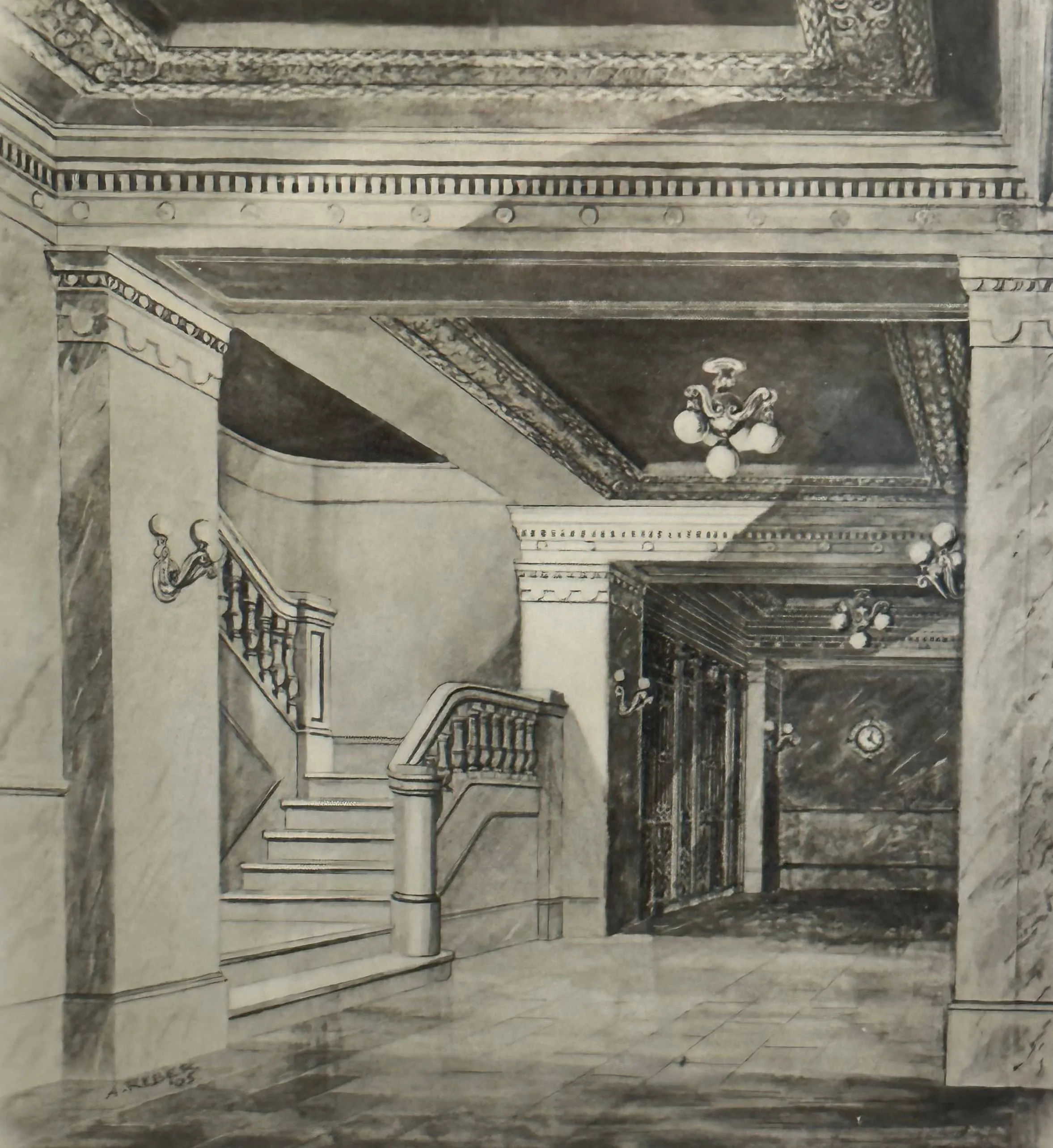




Benedum-Trees Building


Originally called the Machesney Building, this 19-story skyscraper of granite, brick, and terracotta supported by 1,400 tons of structural steel was built to appeal to stockbrokers and bankers. Its lavish lobby is swathed in Italian marble with bronze fixtures and coffered plaster ceilings accented in gold leaf. Cutouts on both sides ensured that if other skyscrapers were built next door, the open shafts would still admit light and air.
The building was renamed in 1913 when it was bought by two "wildcatters" who made immense fortunes drilling for oil. From their 15th floor offices, Mike Benedum and Joe Trees pioneered major oil discoveries in West Virginia, Illinois, Louisiana, Arkansas, Texas, and Mexico. Their long friendship was forged not only in business but in suffering — each lost his only son in 1918 during World War I.
Both were generous philanthropists, Benedum especially for his home state of West Virginia, and Trees for his alma mater, the University of Pittsburgh. The charitable foundation Mike and Sarah Benedum established in memory of their son, Claude, is still in the building.
A handsome two-story office on the ground floor that once housed an investment brokerage is now an art gallery with revolving exhibitions.

Mike Benedum
Promoted to manager in the local flour mill while still a teenager in Bridgeport, W.V., Benedum nearly lost an arm in a work accident, so he decided to seek another career. On a train to Parkersburg, he offered his seat to an older man who turned out to be a manager for South Penn Oil. The man hired Benedum, who proved to be adept at persuading farmers to lease their land to South Penn for possible drilling in return for royalties if a well struck oil.
In 1896, Benedum and Joe Trees decided to try drilling their own well. They succeeded on their first attempt, and with the next 10 wells they sunk too. In 1907 they moved their Benedum-Trees Oil Company from Wheeling to Pittsburgh, and later bought this building to make it their company headquarters. Besides his oil interests, Benedum was a staunch Democrat who also bankrolled the city's Black newspaper, the Pittsburgh Courier.
"I can see Joe yet, standing on the floor of the derrick, grinning like a schoolboy, scooping the oil up in his hands and letting it trickle through his fingers."
— Mike Benedum

Joe Trees
Though he planned to be a schoolteacher in his hometown of Indiana, Pa., Trees changed his mind when he heard how much more oil workers were paid. Resolving to study engineering and geology, Trees took his towering 6'3" frame to the University of Pittsburgh, then Western University of Pennsylvania, which offered Trees full tuition to play on the football team. He thus received the university's first athletic scholarship.
An engineer for South Penn Oil, he became acquainted with Mike Benedum and eventually the two left their company jobs and became partners, first investing in oil royalty contracts, then in prospective "wildcat" drilling. Trees was the geological expert and the boss at the well site, while Benedum was responsible for financial and trading matters and big ideas. They worked together successfully for more than four decades. In 1943 Trees died of a heart attack while meeting with Benedum in his office.
"Mike never did get any kick out of drilling in proven territory. He always wanted to drill wildcats and find new oil. Darned if he didn't get me to feeling the same way."
— Joe Trees

Caroline Jones Machesney
The daughter of a Fourth Avenue banker and judge, "Oline" Jones Machesney inherited her family's estate to become one of Pittsburgh's wealthiest women. In 1905 she commissioned this skyscraper on her land next door to the stock exchange, across the street from where her father's bank once stood.
Sued by a passerby who tripped and broke her foot on a freight elevator door jutting from the sidewalk, Machesney in 1913 sold her skyscraper to Mike Benedum and Joe Trees for $1 million. She went on to head the organizing committee for the Pittsburgh Association Opposed to Women’s Suffrage, but failed to persuade voters to leave voting only to men. In later years, Machesney directed plays at the Twentieth Century Club, a private organization for well-to-do ladies.







